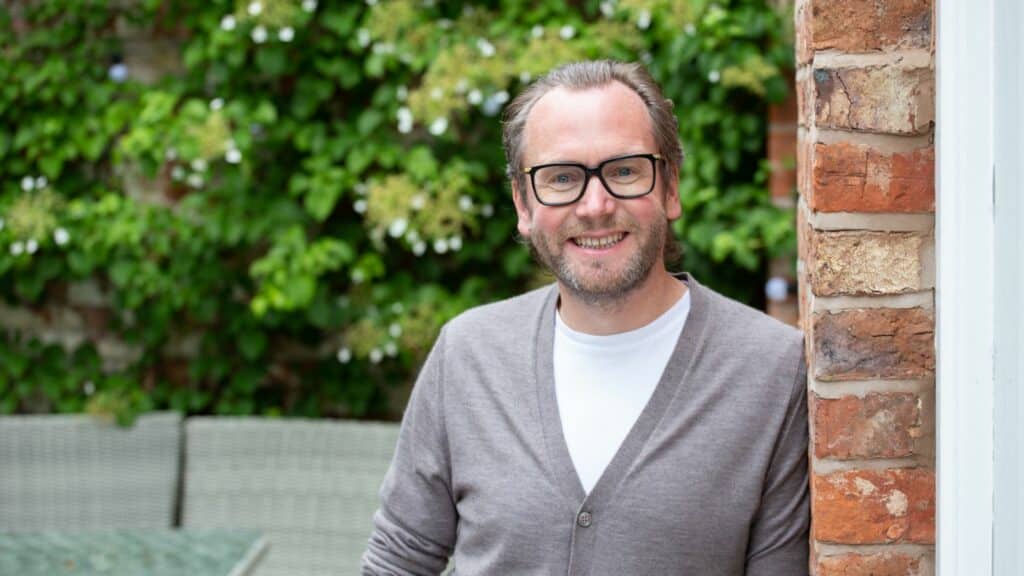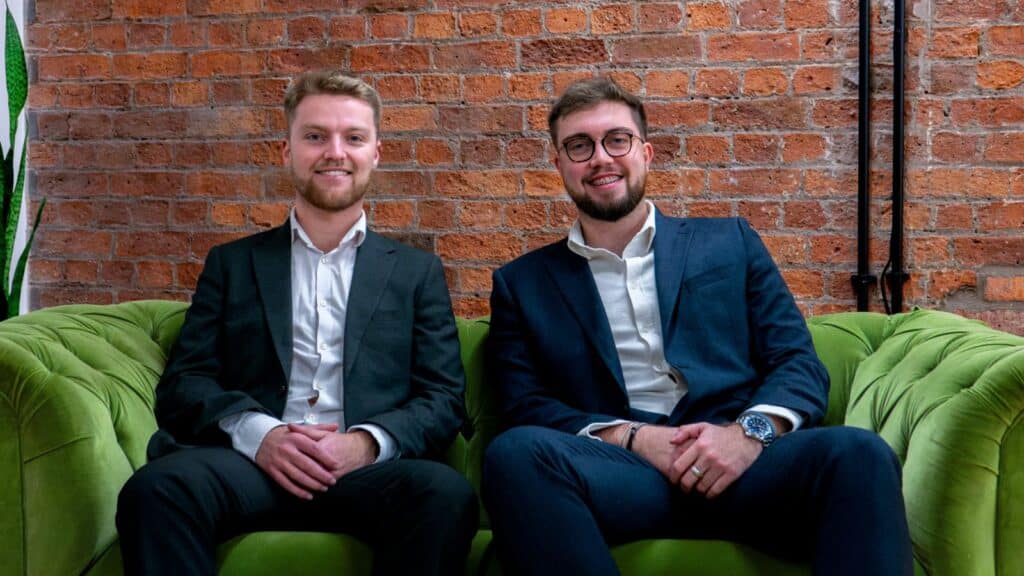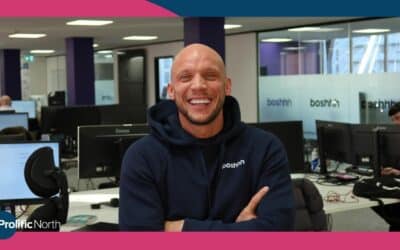The North boasts a successful start-up ecosystem, worth a combined £75bn, but some founders argue a ‘start-up mentality’ and ‘provincial thinking’ are barriers to building billion-dollar businesses. So is a lack of ambition holding back the North’s potential to create tech giants?
It’s a question that’s cropped up in numerous conversations for Prolific North’s newly launched deep dive tech series GRAFT, which shines a spotlight on the people, places and power structures shaping the future of Northern tech. So we’ve spoken to a handful of tech leaders and investors to find out if this really is the case – and why.
Renowned tech success story Matillion has raised over $300m in venture capital. But it still remains one of Manchester’s only tech unicorns, a company with a valuation of over $1bn, in the past 10 years.
Despite the “buzz” of the city from its friendliness, to skills, and the availability of capital, there’s one key thing that needs to change – and it’s not just a Northern problem, according to Matillion’s co-founder and CEO Matthew Scullion.

“We just don’t have that drive, ambition or an aggression to regularly embark upon missions to change the world and build genuinely meaningful businesses with multi-billion dollar valuations and hundreds of millions of revenue, or billions in revenue,” he tells Prolific North.
Matillion’s story is one that is aspirational for a number of earlier-stage founders we’ve spoken to as part of our GRAFT series so far. But Scullion wants entrepreneurs to aim much higher.
“I’m flattered by it but it worries me that people aspire to be a company of the scale of Matillion, because we’re just getting started. We’re around £100m of revenue. That’s a really good start, but it’s not yet a consequential, durable business that’s changed the world.”
READ MORE: Unveiling Prolific North’s GRAFT series into the future of tech across the North
READ MORE: The reality of scaling a tech business in the North
“If you compare that to the attitudes in the bay area of San Francisco, everybody expects to build $100m businesses. We’re seen as a success story because we’re ahead of other Manchester based start-ups. But if I compare myself to my colleagues in Silicon Valley, I don’t think I’ve made it yet.”
This ambition gap, he argues, needs to be addressed for tech businesses across the North to truly scale.
“We have smaller ambitions and we’re more provincial, but that’s a UK thing, and we need to work on backing ourselves, being more ambitious and assuming that when we’re building businesses, we’re doing it to attract global markets and genuinely create something big and durable.”
Over at student rental platform Housr, co-founder Harry Panter is a young entrepreneur who certainly does not lack ambition. I’ve traced Housr’s journey from its early-stages, first interviewing Panter three years ago and was enthused by his ambitions to become the leader behind the region’s next tech giant.

“The immediate goal would be to dominate Manchester first, then to expand and become the go-to student housing app in the UK,” he told me at the time.
Three years on, those plans are coming to fruition. Speaking from a much bigger office space at Department’s Bonded Warehouse recently, Panter has built the team up to 40 staff at the Manchester HQ with an additional 20 people based near Nebraska over in the US. He’s now currently over in the US, building out his firm’s operations there.
READ MORE: How Northern tech is “grafting” its way to the top with global ambitions
Similarly to Scullion, he believes more founders should have the same entrepreneurial mindset when it comes to scaling their businesses.
“I’m building a billion-dollar business, one way or another. If others had that philosophy, it would attract more investment, so investment wouldn’t be a problem,” he explains.
The real “problem”, at least in Manchester, is the founder network and support for businesses looking to scale. “There aren’t many major founders in Manchester, at least I don’t see them. In every network and every mixer that we’ve been to, you end up just seeing the same exact people and it seems no one’s actually progressing enough,” he explains.
“In New York, I will be sat talking to someone doing £20m ARR or I’ll be the least impressive person in the room. That’s exactly what I want to be! You never want to be doing the best or growing the quickest in the room.
“It’s more of a mentality where we don’t really shout about ourselves enough, compared to America. I’m sure people are more than happy to say it’s not as fast-paced. And I want to be fast-paced.”
Over at travel tech start-up Arcube, which recently raised a £1.2m funding round, co-founder Harvey Lowe agrees the network could be improved: “The network is maybe a bit smaller when it comes to start-ups in the North that have that £100m plus valuation. I could name Matillion, but I couldn’t name any more than that.
“But we’re still having to grow a business. It might be helpful to have that network of advisors or founders that have been there before, who might be able to solve your problems with similar things they may have faced.”

But what do those behind some of the North’s VC funds think? Ben Davies is marketing director at Praetura Ventures, an active venture capital investor based in the North. For Davies, Northern tech ecosystems need one thing: time to build.
READ MORE: Inside the Northern tech scene and the investors betting big outside London
“The North doesn’t lack ambition or talent. And in a capital downturn, our ability to build things with less resources is an essential skill. However, we’re still a fairly new ecosystem and with that comes some growing pains, particularly when going from start-up to scale-up,” says Davies.
“We see a lot of Northern entrepreneurs take just a little bit longer to back themselves to scale. Like any new experience, this can be especially true of first-time founders. It’s something our Operational Partners work on a lot with our Portfolio founders, we focus on how to scale something that’s going to be meaningful beyond the North (and the UK).”
For Dr Elizabeth Young, investment manager at Par Equity, over the next few years she would love to champion “bringing that entrepreneurial culture to universities”.

“We are still quite behind next generation technologies, a lot of it is still wrapped up in the universities and it hasn’t been commercialised yet. There’s excellent research – but we are not getting it out the door,” she explains.
READ MORE: ‘Why I’m moving to Manchester to scale my AI business’
“The ambition is naturally there for these researchers, so I think that’s something that needs to be unlocked and it hasn’t been nurtured as well as it should have been, in my opinion, across the North over the past 10 to eight years.
“You hear a lot of people say founders up here don’t want to get to a billion, I think there’s a number of reasons for that, and a lot of it is you aim for what you know.
“Have there been that many unicorns in the North? Absolutely not, right? So it’s what you view as achievable, who you meet in a room and who are your role models, what is presented that’s tangible for you to then build into your dream and vision, and the impact of the types of funding available.
“I don’t think there’s a lack of ambition, I think it’s a mixture of all of those things.”
Varun Monteiro, an angel investor and CEO and co-founder of Manchester tech firm Finity, would like to see more founders set up businesses and “take risks”.

“I’d like more support from communities and the government for people to set up businesses. In the US, they encourage people to set up businesses, and I think it’s something that we lack in the UK.
“I think the risks need to be rewarded either by tax benefits, support from the government, or free mentorship. But it requires a shake-up of people’s perception about business. It’s risky, but the rewards are infinite if you do it right.”
GET INVOLVED: Everything you need to know about our GRAFT event in May
For Davies at Praetura, scaling isn’t just about “big bets”. He continues: “It’s about relentlessly focusing on a few key objectives and investing significant resource to make you globally competitive. It’s about being metrics driven and adaptable when there’s more people relying on you, more money in play and bigger clients to win.
“Billion-dollar businesses are uncompromising on their quality standards across talent, product development, and marketing, but at one time they too had to use shortcuts to get by. This problem isn’t unique to the North, it’s something all ecosystems go through. In time, this will become more common place as we see more success stories come out of the North.”
David Hall, executive chairman at YFM Equity Partners, has a number of observations about some founder concerns over a ‘start-up mentality’ and lack of ambition in the North.
“It seems there’s a gap between London/the South East and the rest of the UK when it comes to the speed of moving from idea to execution. Data suggests it takes about two years longer to reach the same stage. There’s a lot of research happening here, but no definitive answers yet,” he explains.

“Second, once businesses receive their first institutional round (such as £3m to £5m), regional businesses – including those in the North – tend to take 15 to 18 months longer to return for follow-on funding. Again, more questions than answers.”
In terms of the “lack of ambition,” he says it may be that some funding is too focused on capital efficiency with a mentality of “don’t spend too much, spend wisely, don’t run out” rather than scaling aggressively.
“Finding the right partner for the entire journey might not be prioritised early enough. If you’re addressing big local and global markets, you’ll likely need multiple rounds of funding. Your first investor needs to be aligned with that journey. If they only want to be involved for part of it, alignment will suffer.
“As the UK venture ecosystem matures, we’re seeing improvements – but we’re starting from a base where there hasn’t historically been a large population of businesses or investors with this experience.”
But work is being done to improve this, with Hall referencing the growth of YFM’s funds to £750m with around £300m of cash to support growing businesses.
“We’ve learned from our entrepreneurs what works during the scaling journey. When you have an opportunity to build something consequential, the rewards of giving it a proper go far outweigh the quick-win ‘let’s get out now’ approach.”













